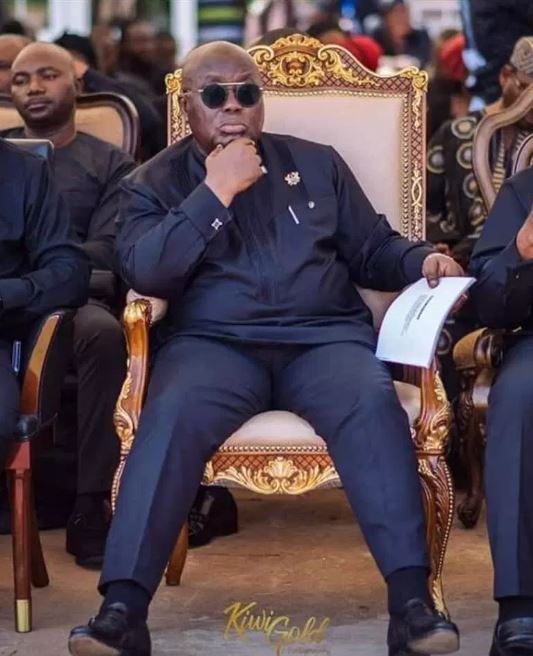|
Getting your Trinity Audio player ready...
|
Ghanaian leader Nana Akufo-Addo has said he is more focused on the general elections than what survey results about his government are saying.
“The only poll that matters is the one which will happen on the 7th of December,” Akufo-Addo stated at a media encounter on Friday at the seat of government in Accra.
He added: “There were polls that said I couldn’t be here, I will never be here but I’m here. What is important is my program and what I’m carrying. When it’s time for Ghanaians to comment on it they will comment on it and it will be a positive one.”
The latest Afrobarometer report revealed that the opposition NDC has maintained its popularity rate over the last two years while the ruling NPP has dwindled in support by as much AS 15%.
“Compared to 2017, the proportion of respondents who said they would vote for the NPP has dwindled by 15 percentage points from 49% to 34% while the share who said they would vote for the NDC has remained unchanged 22%.
“These findings suggest that a large chunk of the electorate is still waiting to be convinced, during the year remaining before Ghana’s 2020 presidential election, to vote for a specific candidate – or even to vote at all,” the report said.
The report also said 4 out of 10 Ghanaian electorates, would not vote if presidential and parliamentary elections were to be held today.
This represents 42 per cent of the number, a recent Afrobarometer report by the Ghana Centre for Democratic Development (CDD) has revealed.
The 42%, according to the survey, is the highest that has been recorded in the since 2008.
Eleven percent of the voters also did not know whether or not they would vote while 12% refused to answer the question on whether or not they would vote, the survey further indicated.
The report also indicated a 15 per cent decline, the proportion of respondents who said they would vote for the ruling party as compared to the year 2017 — from 49% to 34%.
However, the share who said they would vote for the main opposition National Democratic Congress (NDC) has remained unchanged (22℅).
Among declared voters, the NPP and the NDC both held leads in eight of the 16 regions with the NDC generally more popular in the six newly-created regions.
The report conducted by Center for Democratic Development’s Afrobarometer Survey said: “When asked in September-October how they would vote if a presidential election were held “tomorrow,” more Ghanaians said they would not vote or didn’t know or wouldn’t say how they would vote than declared for the ruling New Patriotic Party (NPP) or the National Democratic Party (NDC).
“The proportion of adult citizens who said they would not vote is the highest since 2008 and has increased by 6 percentage point between 2017 and 2019. Among respondents who declared a preference, the NPP maintained a lead over the NDC, though its lead has shrunk by 15 points compared to survey responses in 2017. And without a clear understanding of undeclared voters, it is impossible to draw solid conclusions about a likely election outcome.
“These findings suggest that a large chunk of the electorate is still waiting to be convinced, during the year remaining before Ghana’s 2020 presidential election, to vote for a specific candidate – or even to vote at all.”
Below are the key findings:
When asked which party’s candidate they would vote for if presidential elections were held the following day, more than four in 10 Ghanaians (42%) said they would not vote (11%), did not know (12%), or refused to answer the question (19%).
The proportion of Ghanaians who said they would not vote and who did not declare a voting intention is the highest recorded in Afrobarometer surveys going back to 2008.
Youth were twice as likely as older citizens to say they would not vote (14% of those aged 18-35 vs. 7% of those aged 56 and above), as were urban residents (15%) compared to rural residents (7%).
The proclivity to sit out the election was also considerably stronger among the highly educated (17% of those with post-secondary education) and relatively well-off citizens (13% among those experiencing no lived poverty) compared to the less educated (6% of those with no formal education) and poor citizens (4% among those experiencing high lived poverty).
Compared to 2017, the proportion of respondents who said they would vote for the NPP has dwindled by 15 percentage points (from 49% to 34%) while the share who said they would vote for the NDC has remained unchanged (22%)
Source: Daily Mail GH





